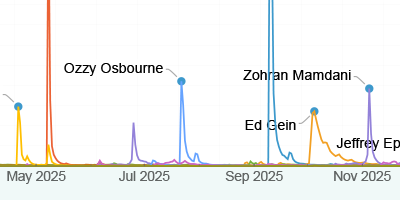Data Science + Engineering: Building a Centralized Computation Hub
As the technology manager for Assured Flow Solutions, Andrew Yule has long relied on the Wolfram Language as his go-to tool for petroleum production analytics, from quick computations to large-scale modeling and analysis. “I haven’t come across something yet that the Wolfram Language hasn’t been able to help me do,” he says. So when Yule set out to consolidate all of his team’s algorithms and data into one system, the Wolfram Language seemed like the obvious choice.
In this video, Yule describes how the power and flexibility of the Wolfram Language were essential in creating Alex, a centralized hub for accessing and maintaining his team’s computational knowledge:
Collecting Intellectual Property
Consultants at Assured Flow Solutions use a variety of computations for analyzing oil and gas production issues involving both pipeline simulations and real-world lab testing. Yule’s first challenge was to put all these methods and techniques into a consistent framework—essentially trying to answer the question “How do you collect and manage all this intellectual property?”
Prior to Alex, consultants had been pulling from dozens of Excel spreadsheets scattered across network drives, often with multiple versions, which made it difficult to find the right tool for a particular task. Yule started by systematically replacing these with faster, more robust Wolfram Language computations. He then consulted with subject experts in different areas, capturing their knowledge as symbolic code to make it usable by other employees.
Yule deployed the toolkit as a cloud-accessible package secured using the Wolfram Language’s built-in encoding functionality. Named after the ancient Library of Alexandria, Alex quickly became the canonical source for the company’s algorithms and data.
Connecting the Interface
Utilizing the flexible interface features of the Wolfram Language, Yule then built a front end for Alex. On the left is a pane that uses high-level pattern matching to search and navigate the available tools. Selected modules are loaded in the main window, including interactive controls for precise adjustment of algorithms and parameters:

Yule included additional utilities for copying and exporting data, loading and saving settings, and reporting bugs, taking advantage of the Wolfram Language’s file- and email-handling abilities. The interface itself is deployed as a standalone Wolfram Notebook using the EnterpriseCDF standard, which provides access to all the company’s intellectual property without requiring a local Wolfram Language installation.
Flexible Workflows, Consistent Results
This centralization of tools has completely changed the way Assured Flow Solutions views data analytics and visualizations. In addition to providing quick, easy access to the company’s codebase, Alex has greatly improved the speed, accuracy and consistency of results. And using the Wolfram Language’s symbolic framework adds the flexibility to work with any kind of input. “It doesn’t matter if you’re loading in raw data, images, anything—it all has the same feel to it. Everything’s an expression in the Wolfram Language,” says Yule.
With the broad deployment options of the Wolfram Cloud, consultants can easily share notebooks and results for internal collaboration. They have also begun deploying instant APIs, allowing client applications to utilize Wolfram Language computations without exposing source code.
Overall, Yule prefers the Wolfram Language to other systems because of its versatility—or, as he puts it, “the ability to write one line of code that will accomplish ten things at once.” Its unmatched collection of built-in algorithms and connections makes it “a really powerful alternative to things like Excel.” Combining this with the secure hosting and deployment of the Wolfram Cloud, Wolfram technology provides the ideal environment for an enterprise-wide computation hub like Alex.
Find out more about Andrew Yule, as well as other users’ exciting Wolfram Language applications, on our Customer Stories pages.



Comments